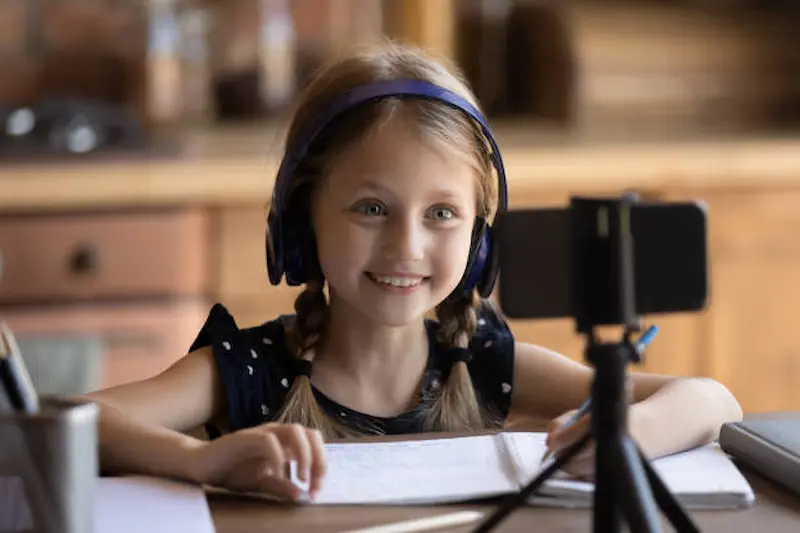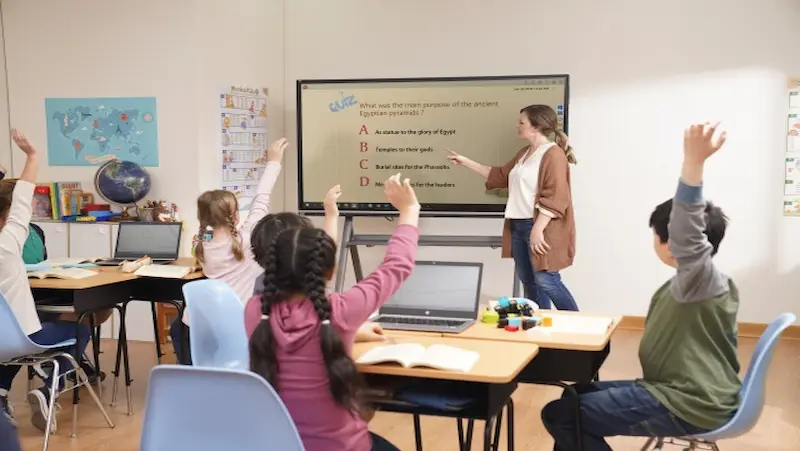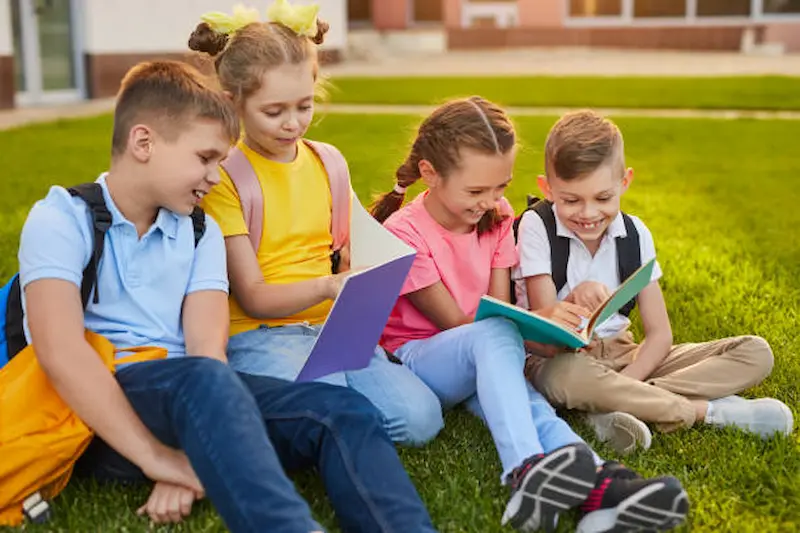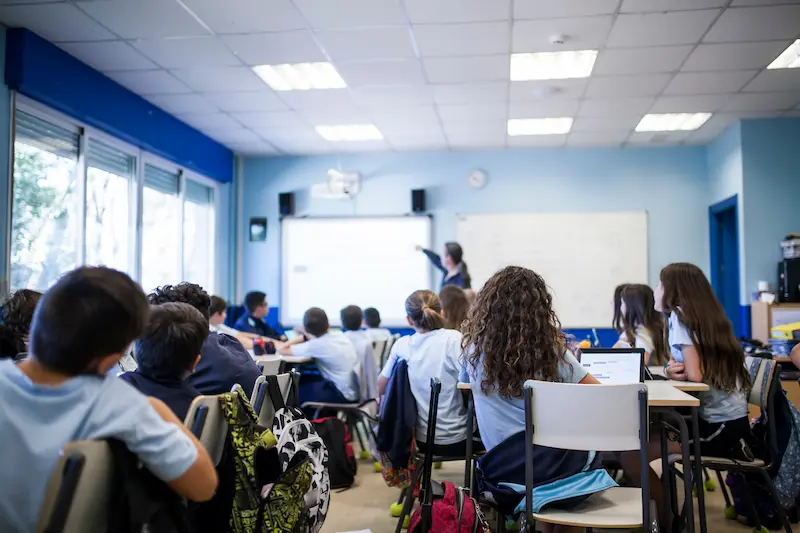Learning experiences serve as the foundational bricks upon which we construct our knowledge and personal development. They have the profound ability to sculpt our perceptions of the world and decisively impact the life journeys we embark upon. Whether we are engaged in structured learning within a classroom or venturing into the realms of self-directed discovery, each encounter with new information and skills possesses the transformative power to etch enduring imprints on our lives. These experiences are not merely moments in time; they are the stepping stones that propel us toward our goals and aspirations, guiding us as we navigate the ever-evolving landscape of our existence.
In this blog we will look into what all makes up for a remarkable learning experience so that kids can get a better chance at learning!
Table of contents
Understanding Learner Psychology

1. Cognitive Processes in Learning: To design effective learning experiences, we must delve into the cognitive processes that underpin how individuals acquire and retain knowledge. Understanding memory, attention, and problem-solving mechanisms enables us to tailor content and teaching methods to optimize learning outcomes. Child development
encompasses the intricate and interconnected cognitive processes that underlie a child’s evolving abilities in areas such as problem-solving, memory, and language acquisition.
2. Emotional Factors in Learning: Emotions play a pivotal role in learning. We’ll explore how positive emotions like curiosity and engagement enhance learning, while negative emotions such as stress or anxiety can hinder it. Strategies for cultivating emotionally positive learning environments will be discussed.
3. Motivation and Learning: Motivation is the engine that propels the learning journey forward. Intrinsic motivation, stemming from personal interest and a sense of accomplishment, fuels a deep and lasting desire to learn. Extrinsic motivation, through strategies like setting achievable goals and offering rewards, acts as a catalyst, providing immediate incentives for learners to stay engaged and focused on their educational objectives.
Designing Curriculum and Content
1. Setting Learning Objectives: Clearly defined objectives guide the learning journey. They help learners understand what to expect and track their progress.
2. Creating Engaging Content: Interactive, multimedia-rich content captivates learners. Storytelling, real-world applications, and problem-solving exercises make learning enjoyable.
3. The Role of Multimedia: Multimedia elements, including videos, simulations, and interactive quizzes, enhance comprehension and retention.
Designing a curriculum that aligns with the stages of child cognitive development is essential to ensure that the content is age-appropriate and conducive to optimal learning.
Personalization and Adaptation

Tailoring Learning Paths
Personalized learning acknowledges that each student has a unique set of learning preferences and a different pace of grasping concepts. By tailoring learning paths to accommodate these variations, education becomes more inclusive and effective. This individualized approach allows learners to delve deeper into subjects that resonate with them, promoting a deeper understanding and a heightened level of engagement. Ultimately, personalized learning cultivates a more meaningful and rewarding educational experience for all.
Adaptive Learning Technologies
AI-driven adaptive technologies represent a transformative shift in education. These cutting-edge tools not only provide real-time feedback but also have the capability to dynamically adjust the content and difficulty level of lessons based on the learner’s performance and progress. This personalised approach ensures that students are continuously challenged at their individual skill levels, making the learning experience highly efficient and engaging.
Adaptive learning technologies can significantly enhance children’s language development by tailoring content and activities to their individual language proficiency levels and learning styles, facilitating a more personalized and effective learning experience.
Interactive Learning Strategies
1. Collaborative Learning: Collaboration is a cornerstone of effective learning, fostering essential skills such as teamwork and critical thinking. Group projects encourage students to work together, problem-solve, and share ideas, enhancing their ability to collaborate in real-world situations. Peer evaluations and online forums further promote interaction, providing opportunities for students to exchange feedback and insights, creating a rich and interactive learning environment.
2. Gamification and Learning: Gamification techniques inject elements of gaming into the educational process, turning learning into an engaging and enjoyable experience. By incorporating game-like elements such as challenges, points, and rewards, gamification motivates students to actively participate and compete in a healthy and stimulating manner.
3. Problem-Based Learning: Encouraging students to tackle real-world problems empowers them by demonstrating the practical applications of their knowledge. This approach not only fosters creativity and critical thinking but also enhances problem-solving skills.
Assessment and Feedback
Formative vs. Summative Assessment
Both formative and summative assessments serve essential roles in evaluating a student’s understanding and progression within the learning process. Formative assessments, conducted during learning, provide ongoing feedback to both students and instructors, allowing for timely adjustments to teaching methods and learning strategies. These assessments help identify areas of weakness and guide learners toward improvement.
Summative assessments, on the other hand, occur at the end of a learning period and serve as a comprehensive evaluation of what a student has learned. They offer a snapshot of the overall understanding and mastery of the material.
Providing Constructive Feedback
Timely, specific, and constructive feedback is a cornerstone of effective education. Providing feedback promptly allows learners to connect it to their recent efforts, making it more relevant and actionable. Specific feedback pinpoints strengths and weaknesses, giving students clear insights into what they did well and where they need improvement. Constructive feedback offers not only critique but also guidance on how to enhance their performance, empowering learners to take proactive steps toward growth and development.
Self-assessment Tools
Promoting self-reflection and self-assessment empowers learners to become active participants in their own educational journey. By encouraging students to evaluate their own work and progress, they gain a deeper understanding of their strengths and areas for improvement, ultimately taking greater ownership of their learning.
VIII. Cultivating a Learning Environment
1. Inclusivity within an educational setting is pivotal as it guarantees that every student, regardless of their background or characteristics, experiences a sense of belonging and appreciation. This, in turn, fosters the creation of a diverse and dynamic learning environment, where everyone’s unique perspectives enrich the collective experience.
2. Fostering a growth mindset is essential for students as it instils the belief that intelligence and abilities can be cultivated through effort and perseverance. This mindset encourages resilience in the face of challenges, motivating learners to view setbacks as opportunities for growth and improvement.
3. Emphasizing the importance of lifelong learning is paramount. Encouraging students to actively embrace new challenges and continuously expand their knowledge and skills ensures that education is not confined to a finite period but becomes an ongoing and enriching part of their lives. This attitude paves the way for individuals to remain adaptable and thrive in a constantly evolving world.
Learner Support and Resources

1. Academic Advising: Academic advising services play a crucial role in supporting learners as they navigate their educational path. These services offer personalised guidance, aiding students in making informed decisions regarding course selection, program requirements, and career pathways.
2. Library and Research Support: Having access to a wealth of research resources is a fundamental component of achieving academic excellence. These resources, which encompass libraries, databases, and archives, provide students and scholars with a rich tapestry of information and knowledge to draw from in their academic pursuits.
3. Peer Tutoring: Peer tutoring programs are instrumental in establishing a nurturing and collaborative learning environment. Within these programs, students actively engage in assisting their peers, fostering a sense of mutual support and shared success.
Overcoming Common Challenges
1. Motivating Disengaged Learners: Implementing strategies such as differentiated instruction and emphasising real-world relevance can reignite motivation among students who may be struggling academically.
2. Addressing Technological Issues: Anticipating and promptly resolving technical issues is essential to prevent disruptions in the learning process. In our increasingly digital educational landscape, ensuring that technology functions smoothly allows students to focus on their studies rather than grappling with technical obstacles, enhancing their overall learning experience.
3. Dealing with Learning Disabilities: Providing accommodations and support is crucial to guarantee equitable access to education for all students, including those with disabilities. By removing barriers and offering the necessary assistance, educational institutions create an inclusive environment where every student can thrive, irrespective of their unique needs and challenges.
Measuring the Effectiveness of Learning Experiences
Assessing the effectiveness of learning experiences involves utilizing appropriate metrics and conducting data analysis. Learner feedback and surveys serve as valuable tools for measuring satisfaction and collecting insights to enhance the educational process. Consistently reviewing and adjusting the learning experience based on this data and feedback is imperative for continuous improvement.
Future Trends in Learning Experiences

The evolution of AI-powered tools in the realm of education is a continuous and dynamic process. These tools are destined to persistently refine and enhance the learning experience, with algorithms becoming increasingly sophisticated. These algorithms will delve deep into the nuances of individual learner preferences, learning styles, and performance data to offer meticulously tailored content. This level of personalization ensures that each student receives precisely the materials and resources that best suit their unique needs and pace of learning, optimizing their educational journey.
Furthermore, the advent of augmented reality (AR) promises to usher in a new era of experiential learning. AR technology immerses students in dynamic and interactive educational environments that blur the lines between the physical and digital worlds. It allows learners to explore complex concepts in a hands-on and engaging manner, enhancing their comprehension and retention of knowledge.
Conclusion
Creating the ultimate learning experience is a complex and multifaceted undertaking that draws from various fields, including psychology, technology, and a commitment to ongoing enhancement. To truly craft an exceptional learning environment, it’s essential to place learners at the center of the educational journey. Understanding their unique needs, preferences, and aspirations forms the foundation upon which all educational strategies are built.
In essence, the ultimate learning experience is an ever-evolving endeavor that marries psychology, technology, and a commitment to growth. By prioritizing learners, embracing emerging trends, and promoting the value of lifelong learning, we can shape educational environments that not only inspire and empower individuals but also propel society forward through their collective contributions.
BrightChamps provides a diverse range of courses tailored for children’s education and future development while also catering to the educational needs.
Explore BrightChamps’ blog page, where you can find a treasure trove of informative articles. These articles delve into the exciting possibilities of the future of education, shedding light on innovative approaches and emerging trends.
Frequently Asked Questions (FAQs)
A1. To begin designing ultimate learning experiences, start by understanding your learners’ needs and preferences, incorporating interactive content, and leveraging technology for personalization.
A2. Technology in modern education plays a pivotal role in enhancing engagement and personalization, offering adaptive learning, immersive experiences, and data-driven insights.
A3. Educators can adapt to diverse learner needs by using differentiated instruction, offering flexible learning pathways, and fostering a growth mindset through personalized support and accommodations.
A4. Numerous schools have successfully implemented these strategies, with notable examples like Khan Academy’s personalized learning approach and Finland’s student-centered education system, showcasing the effectiveness of learner-focused methods.
A5. Educators should be prepared to address challenges such as technological issues, student disengagement, and the need for continuous professional development to navigate the evolving landscape of education effectively.


 We are an army of educators and passionate learners from BrightChamps family, committed to providing free learning resources to kids, parents & students.
We are an army of educators and passionate learners from BrightChamps family, committed to providing free learning resources to kids, parents & students.








